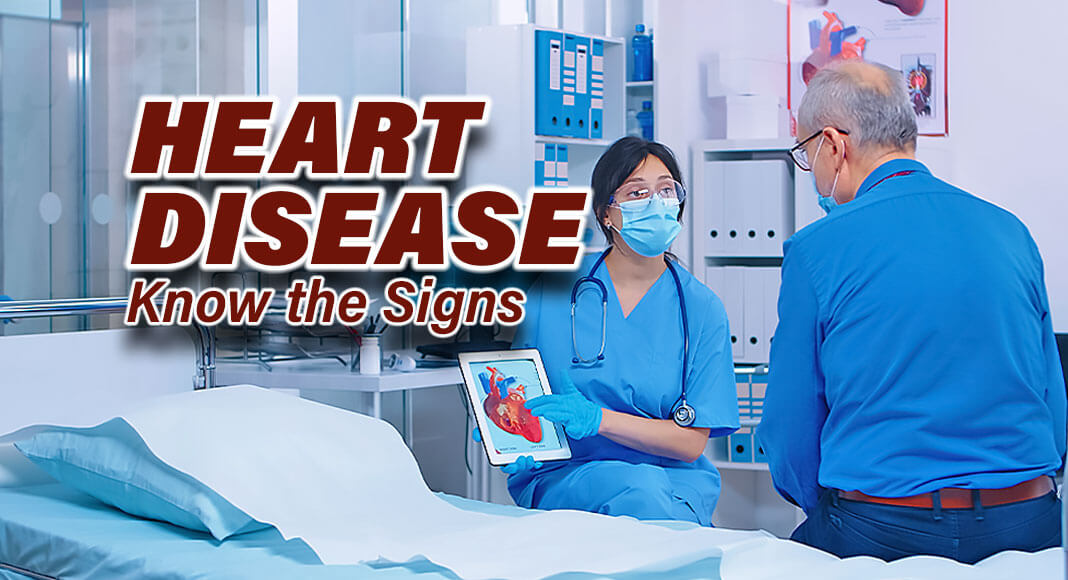
Mega Doctor News
Ochsner Health Blog by Dr. Ryan Boehm, cardiologist
Being diagnosed with heart disease can be scary and unexpected. The term “heart disease” refers to several types of heart conditions. Sometimes, heart disease may be “silent” and not diagnosed until a person experiences signs or symptoms of a heart attack, heart failure, or an arrhythmia (irregular heartbeat).
The Centers for Disease Control says heart disease is the leading cause of death among men and women in the United States. Heart disease can happen at any age, but the risk goes up as you get older. Approximately 697,000 people died from some form of heart disease in 2020.
What are cardiovascular diseases?
- Coronary heart disease: a disease of the blood vessels supplying blood to the heart muscle. This is the most common type of heart disease.
- Peripheral arterial disease: a disease of blood vessels supplying blood to the arms and legs
- Congenital heart disease: a birth defect that affect the normal development and functioning of the heart.
- Deep vein thrombosis and pulmonary embolism: blood clots in the leg veins, which can dislodge and move to the lungs
Not all signs or symptoms of heart disease are clear or obvious like a heart attack or irregular heartbeat. Some symptoms can be misleading or mistaken for something else, including:
Struggling to breathe even when lying down: If breathing is hard when you sleep on your back but often improves when you sit up, you may have fluid buildup in the lungs.
Leg or hip pain: Lower-body pain can result from injuries, arthritis, or being out of shape, but it may also signal circulation problems in the legs from peripheral artery disease.
Extreme fatigue: If everyday activities make you tired — like needing to rest while doing simple tasks, you could have heart disease. If you feel unusually tired from mundane activities, you should contact your doctor.
Swelling in the legs or ankles: When the heart isn’t pumping blood efficiently, fluid can build up causing swelling in the legs or ankles. Swelling can also occur when veins in the legs can’t return fluid to the heart. Swelling in one leg could be due to a blood clot or an infection. Call your doctor immediately or visit the emergency room if leg swelling is accompanied by heart failure symptoms such as shortness of breath.
Jaw pain: By itself, jaw pain probably isn’t heart-related, but if you have pain or pressure in the center of your chest that spreads up into your throat or jaw, it could be a sign of a heart attack.
What are the risk factors for heart disease?
High blood pressure, high cholesterol and smoking are key risk factors for heart disease. About half of the people in the United States have at least one of these risk factors. Other medical conditions and lifestyle choices can also put people at a higher risk for heart disease, including:
- Diabetes
- Obesity
- Unhealthy diet
- Physical inactivity
- Excessive alcohol use
How can I prevent heart disease?
Lifestyle and dietary changes can go a long way in the prevention of heart disease. The American Heart Association points to these tips:
- Eating foods high in fiber and low in saturated fats, trans fat and cholesterol can help prevent high cholesterol.
- Limiting salt in your diet can also lower your blood pressure.
- Limiting sugar in your diet can lower your blood sugar level to prevent or help control diabetes.
- Do not drink too much alcohol, which can raise your blood pressure. Men should have no more than two drinks per day, and women no more than one drink per day.
- Maintain a healthy body weight. People who are overweight or considered obese have a higher risk for heart disease. Carrying extra weight can put extra stress on the heart and blood vessels.
- Don’t smoke. Nicotine use greatly increases your risk for heart disease. If you don’t smoke, don’t start. If you do smoke, quitting will lower your risk for heart disease. Learn more about Ochsner’s smoking cessation services.
- Get moving. Physical activity can help you maintain a healthy weight and lower your blood pressure, blood cholesterol and blood sugar levels.










